Deadline Set 'Behind Closed Doors' For Iran Nuclear Talks
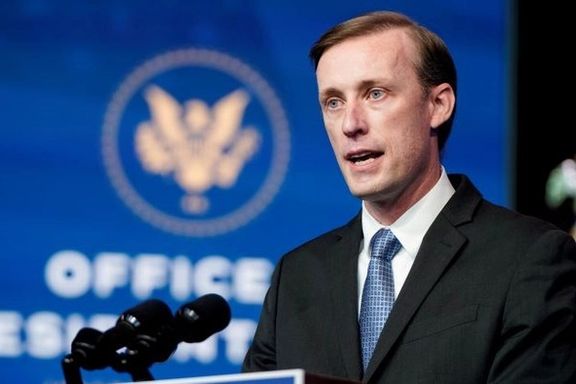
US National Security Advisor Jake Sullivan says the United States and other world powers have set a deadline "within weeks" for fruition of Iran nuclear talks.

US National Security Advisor Jake Sullivan says the United States and other world powers have set a deadline "within weeks" for fruition of Iran nuclear talks.
Following high-level talks with Israeli officials in Jerusalem on Wednesday, Sullivan told Haaretz that Washington and others have not publicly put a date on the calendar “but behind closed doors, there is a deadline, and it is not far away.”The US official said that in the coming weeks, participants in the Vienna talks will find out "whether Iran is ready for the diplomatic solution."
Meanwhile, Axios quoted two unnamed Israeli officials as saying that Sullivan made it clear that the window for further talks in Vienna could close by the end of January or the beginning of February.
Israeli officials who attended meetings in Jerusalem with the national security adviser said they are reassured that Washington is ready to take a harder line on Iran if necessary, while taking Israel’s views into account.
Sullivan said he had been sent to Israel by President Joe Biden "because at a critical juncture for both our countries on a major set of security issues, it's important that we sit together and develop a common strategy, a common outlook".

US national security adviser Jake Sullivan and his Israeli counterpart discussed the threat posed by Iran's nuclear program and other "destabilizing" activities in the region, the White House said Wednesday.
During a visit to Israel, Sullivan updated Israeli national security adviser Eyal Hulata on nuclear negotiations in Vienna as they discussed issues of "vital strategic importance" to both countries, a White House statement said.
"The delegations discussed the need to confront all aspects of the threat posed by Iran, including its nuclear program, destabilising activities in the region, and support for terrorist proxy groups," it said.
"They agreed that Iran’s rapidly advancing nuclear program poses a grave threat to the region and to international peace and security."
It added: "The officials affirmed that the United States and Israel are aligned in their determination to ensure that Iran never gets a nuclear weapon."
Sullivan also met Israeli Prime Minister Naftali Bennett and they discussed the Iranian threat. Sullivan said he had been sent to Israel by President Joe Biden "because at a critical juncture for both our countries on a major set of security issues, it's important that we sit together and develop a common strategy, a common outlook".
With reporting by Reuters
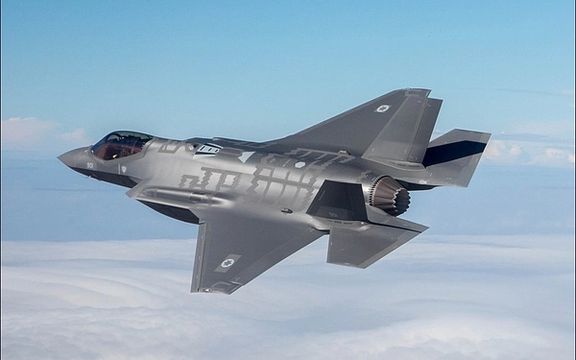
The incoming commander of the Israeli air force Wednesday said that if need be, Israel can successfully destroy Iran’s nuclear facilities “tomorrow.”
Major General Tomer Bar, who is slated to take the helm in April, said in an interview with Israeli daily Yedioth Ahronoth that he is probably the officer who will need to command the strike against Iran's nuclear program if the ongoing talks in Vienna between Tehran and world powers fail.
"I have to assume it will happen in my time, and my shoulders already understand the weight of the responsibility," said the former fighter pilot, who currently commands the Force Design Directorate.
He said that despite reports on Israel’s lack of readiness or other factors hindering a possible strike on Iran, he is certain that it can complete the mission successfully. “There is no way that…I will return home without being able to say “I completed the mission”, he stressed.
"From the moment I sat here at the head of the Force Design Directorate, and the chief of staff spoke with me, the mission of the 'third circle' (Iran) was there… We are not starting from zero. We equipped ourselves with F-35s, we procured thousands of Iron Dome interceptors for multi-layer defense," Bar added.
The third circle, whose primary focus is Iran, refers to the three levels of direct threats facing Israel, the first being small terror groups on Israeli borders, like Hamas; the second being larger threats, like the Syrian army and Hezbollah; and the third being countries that do not share a border with Israel, like Iran and Iraq.
Bar said he believes that as soon as Israel strikes Iran, the next war with Hezbollah will break out. “I have to assume that he [Hezbollah Secretary-General Hassan Nasrallah] will automatically be all in. Thirty years he has waited for this order and there is no way that he will not be there and with the highest intensity. We have to be prepared for this".
He noted that the next war with Lebanon will definitely involve a ground operation, but it will not be comparable to the previous wars. In 2006, Israel waged a ground and air war against Hezbollah with limited success, but critics said ground force level committed was limited.
"This is not raising the volume on the same radio. The familiarity with Hezbollah, the number of targets, the strength built over the years in matters of intelligence and attack capability, electronic warfare, cyber, make it something else entirely. I can stand by my word,” Bar said, adding that Hezbollah cannot imagine Israel’s power.
"Maybe they will try to bring in special forces or shoot at the home front, but we are no longer on this scale. We want a clear victory this time, in a shorter time and with fewer losses," the commander said.
Earlier in the day, visiting US National Security Adviser Jake Sullivan and Israeli Prime Minister Naftali Bennett discussed Iran and the ongoing nuclear talks, stressing the need for a joint strategy. Sullivan said he had been sent to Israel by President Joe Biden "because at a critical juncture for both our countries on a major set of security issues, it's important that we sit together and develop a common strategy, a common outlook".
A senior Iranian commander said on Monday that Israel does not have the ability to strike Iran’s nuclear or military bases without US approval, and repeated threats to attack Israel, as the Revolutionary Guard launched large-scale air and naval drills in the Persian Gulf.
"If Israel carries out attacks against Iran, our armed forces will immediately attack all centers, bases, routes, and spaces used to carry out the aggression," Iranian commander Gholamali Rashid said.
Following weeks of reports of Israeli preparations for attacking Iran's nuclear installations, the Tehran Times published an article -- headlined "Just One Wrong Move"– with a map of purported missile targets in Israel on its front page.
Israel has long threatened military action against Iran, and recently reportedly allocated $1.5 billion for an attack if Iran gets dangerously close to obtaining a nuclear weapon.
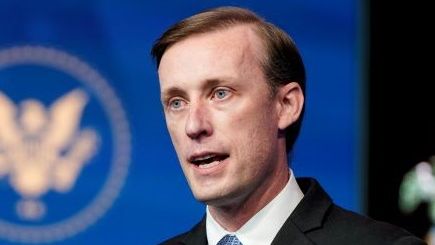
Visiting US National Security Adviser Jake Sullivan and Israeli Prime Minister Naftali Bennett discussed Iran and the ongoing nuclear talks in a meeting on Wednesday.
Bennett's office, which issued video of the meeting, said in a statement that the two discussed Iran and world powers' efforts to renew the 2015 nuclear deal.
"What happens in Vienna has profound ramifications for the stability of the Middle East and the security of Israel for the upcoming years," Bennett told Sullivan, referring to the site of the negotiations with Iran.
Israel is not a party to those talks. It has long hinted that, should it deem diplomacy a dead end, it could resort to military force to prevent Iran gaining the means to make a bomb.
Iran denies seeking nuclear weapons.
Sullivan said he had been sent to Israel by President Joe Biden "because at a critical juncture for both our countries on a major set of security issues, it's important that we sit together and develop a common strategy, a common outlook".
Top-selling Israeli newspaper Yedioth Ahronoth ran an interview with the country's incoming air force chief in which he was asked if his corps was poised to attack Iran "tomorrow", if required. "Yes," responded Major-General Tomer Bar.
Reuters report
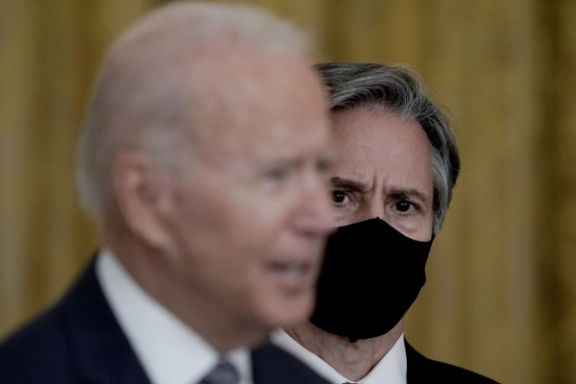
A website close to Iran's national security chief Wednesday called United States warnings limiting time available to salvage the 2015 nuclear deal a “Damocles sword.”
As related by the first-century BC Roman philosopher Cicero, the tale of Damocles and his sword represents dangers hanging always above the heads of the powerful.
Nour News, which is close to the SNSC secretary Ali Shamkhani, said in an editorial that “Western” parties to the Vienna nuclear talks aimed at reviving the JCPOA (Joint Comprehensive Plan of Action) had hardened their approach with the phrase ‘time limitation.’
Both the US, which left the JCPOA in 2018 and the three western European JCPOA signatories − France, Germany, and the United Kingdom − have intimated they will soon leave the Vienna talks if Iran does not agree to their proposals, although they have not set a specific deadline.
Referring to the US Secretary of State Antony Blinken and White House Iran envoy Robert Malley's warnings Tuesday of time running out, Nour News said under the headline "Why the West Doesn't Want to Admit Progress in Talks" that they were hanging a Damocles sword over Iran.
Hardline website Jahan News also called their statements "a psychological war operation" aimed at encouraging the Iranian public to put pressure on Tehran’s negotiators to make concessions.
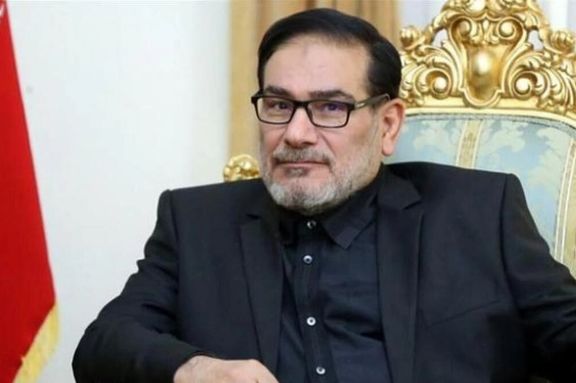
Malley told CNN Tuesday that “we have some weeks left but not much more than that."
Asked if Iran was “playing for time,” he replied. "If it's their plan I strongly urge them to revisit it."
Malley claimed Iran was “nearing the capability” to develop a nuclear weapon through expanding its nuclear program, referring to steps taken since 2019, the year after the US quit the JCPOA and imposed ‘maximum pressure’ sanctions. Malley said that within weeks there would be no deal to be revived and "a period of escalating crisis" would follow.
Blinken spoke Tuesday of a window rapidly closing. "It's getting very, very short,” he said. “Being able to recover full benefits of JCPOA, by [Iran] returning to compliance with it, is getting increasingly problematic by advances that Iran makes every single day in its nuclear program."
Nour News noted that the US emphasis on closing windows and time running out did not include lifting “unjust and illegal sanctions,” which had to be “one of main pillars of an agreement.” The site pointed to Iran’s nuclear program being “peaceful” and “advancing in accordance with the [Nuclear] Non-Proliferation Treaty.”
Nour News wrote that no party in the JCPOA talks – which include China and Russia: the US participates indirectly – should think one “pillar” of the 2015 agreement could remain in place, meaning restrictions on Iran’s nuclear program, while they were engaged in "destabilizing the other pillar," meaning the lifting of international sanctions.
Nour said it would be "very mistaken" to think Iran would abandon its call for "full, effective, and verifiable lifting of sanctions and a guarantee" that the US would not renege on the deal as it had done before.
Blinken on Tuesday called Donald Trump's withdrawal from the JCPOA in 2018 as "one of the worst decisions made in American foreign policy in the last decade" given that the JCPOA had "put Iran’s nuclear program in a box." He conceded that Trump’s ‘maximum pressure’ had not pushed Tehran into further concessions but rather to expand its nuclear activities and continue to “act aggressively in the region.”
Defenders of a tough policy on Iran argue that Tehran will never make a deal that would permanently stop it from obtaining nuclear weapons or reduce its destabilizing activities in the region. Negotiations with and concessions to Tehran would provide time and resources for it to pursue its current policies.
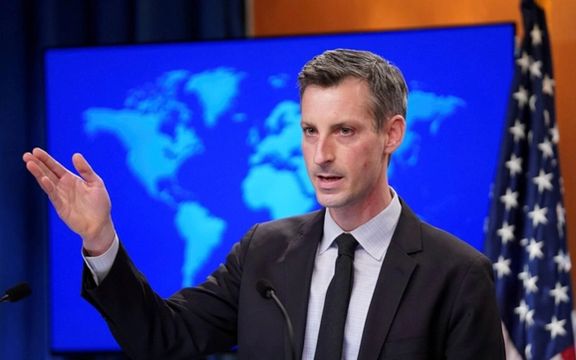
The United States says insufficient progress in Iran nuclear talks has left Washington in an uncertain position as to whether the 2015 deal can be revived.
US Department of State spokesman Ned Price said during a press briefing Monday that there might be some modest progress in talks between Iran and the world powers but if the pace of diplomacy continues to lag, the the 2015 nuclear deal, JCPOA will be a corpse that cannot be revived.
A reporter asked that the Biden Administration has been complaining about Iran's slow pace in the talks but so far the US remains committed to the process.Price responded that progress in the talks “was better than it might have been, but it was worse than it should have been”, putting the US in an uncertain position as to whether the JCPOA is worth saving.
Price pointed out that the talks are going on in an atmosphere of provocation from the Iranians, saying that Iran is accelerating the pace of its nuclear program and leveling up its destabilizing activities in the region. “We can’t accept a situation in which Iran is dragging its feet at the negotiating table but accelerating the pace of its nuclear program back home”, he said.
He acknowledged the arrangement between Iran and the United Nations nuclear watchdog, the IAEA, to restore elements of transparency to international monitoring through reinstalling cameras at Karaj nuclear facility, calling it “a welcome step” but also “a step that never should have been necessary in the first place”.
He noted that there is still “a window of opportunity in which a mutual return to compliance with the JCPOA would be the best option for us, it would be the best option for the other members of the P5+1, it would be the best option for the international community”, because it would still be able to prevent Iran from obtaining a nuclear weapon.
Price, however, added that the US does not waste time and that it is discussing alternatives with partners in the region and beyond, saying, “We continue to watch what Iran does and what Iran says publicly, privately in the context of these indirect negotiations in Vienna… We’re prepared to lift sanctions inconsistent with the JCPOA, as long as Iran places itself back within the strict confines… in terms of the stringent verification and monitoring”.
Answering a question about Iranian-backed militias or proxies across the region, the spokesman said that the decision to walk away from the deal by the Trump administration in 2018 was supposed to “result in a so-called better deal, that would cow Iran and its proxies, that would leave the United States in a stronger position...And across every one of those promises, we’ve actually seen the opposite take place”.
“Across all of our concerns with Iran whether it’s its nuclear program, whether it’s support for terrorism, whether it’s support for proxies, whether it is destabilizing influence in the region, I think it is fair to say that every single one of our concerns has become more pronounced since 2018”, price said.
Defenders of a tough policy on Iran maintain that Iran will never make a deal that would permanently stop it from obtaining nuclear weapons or reduce its destabilizing activities in the region. Negotiations with and concessions to Tehran would provide time and resources for it to pursue its policies.
Price also spoke about the possibility that a nuclear deal might not address the concerns about the broader array of Iran’s destabilizing activities and behaviors throughout the region, noting that Washington is not sitting on its hands when it comes to Iran’s other “malign activities”.
“Iran’s support for armed groups threatens international and regional security. It threatens our forces, our diplomatic personnel, and our partners in the region and elsewhere. We as an administration are committed to countering the destabilizing influence and role that Iran is playing throughout the region, including with its support to proxies”, he said.
In another briefing on the same day, White House Press Secretary Jen Psaki said that due to the way that the Iranians have participated in the last round of talks in Vienna, President Joe Biden has asked the national security team “to be prepared in the event that diplomacy fails and to take a look at other options. And that has been work that has been ongoing, including in consultation with a range of partners around the world”.